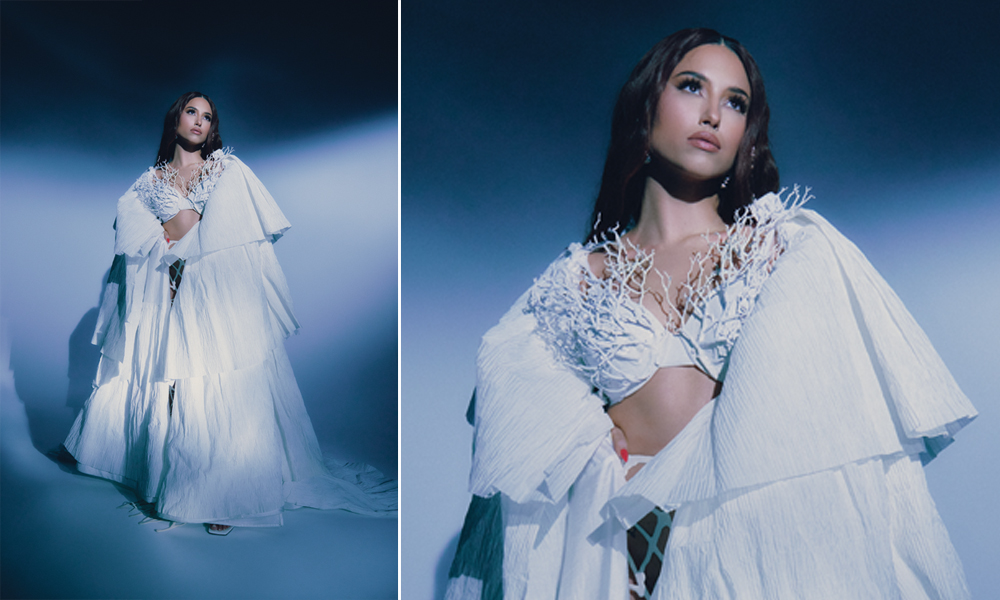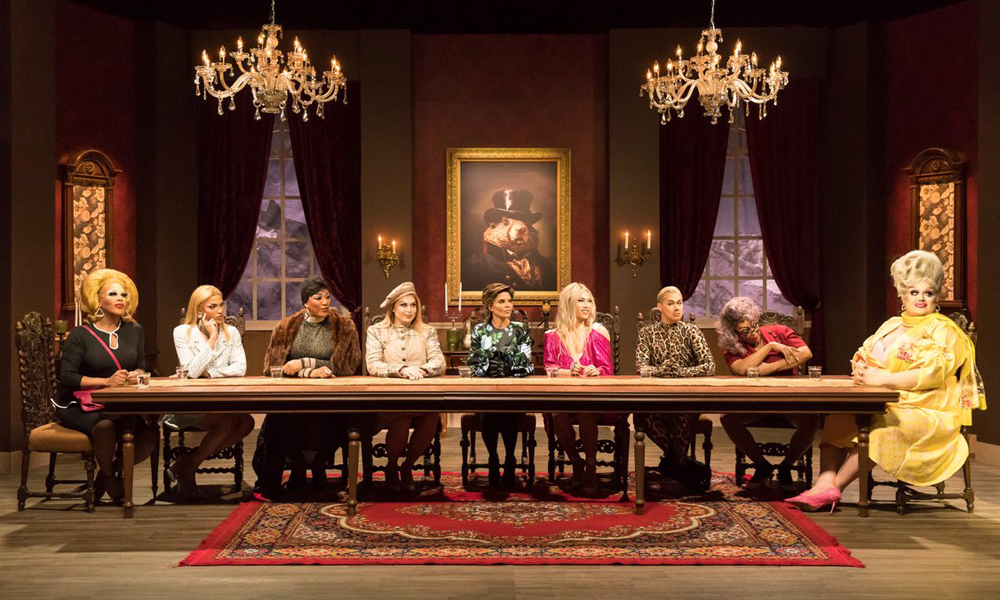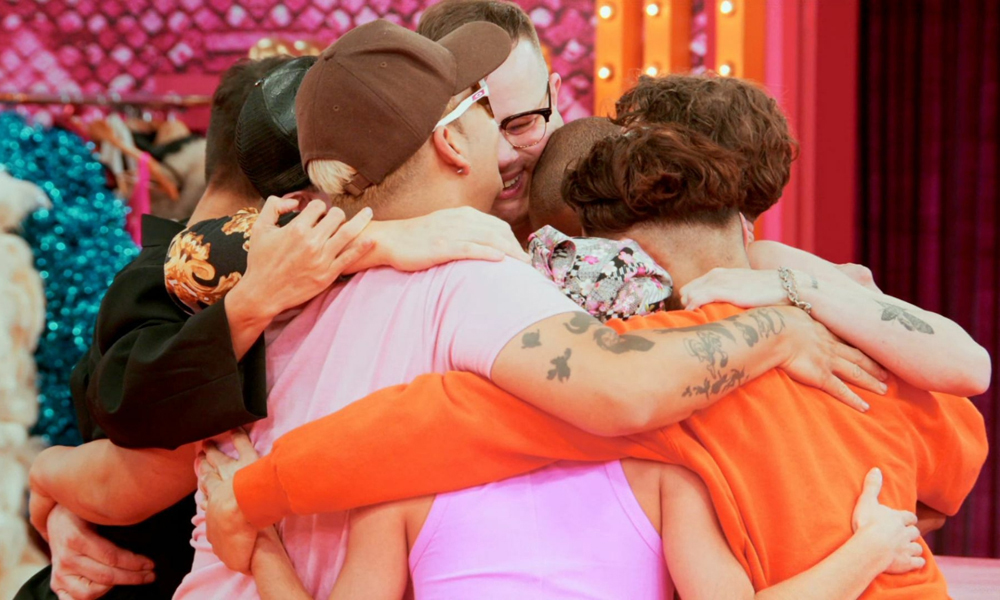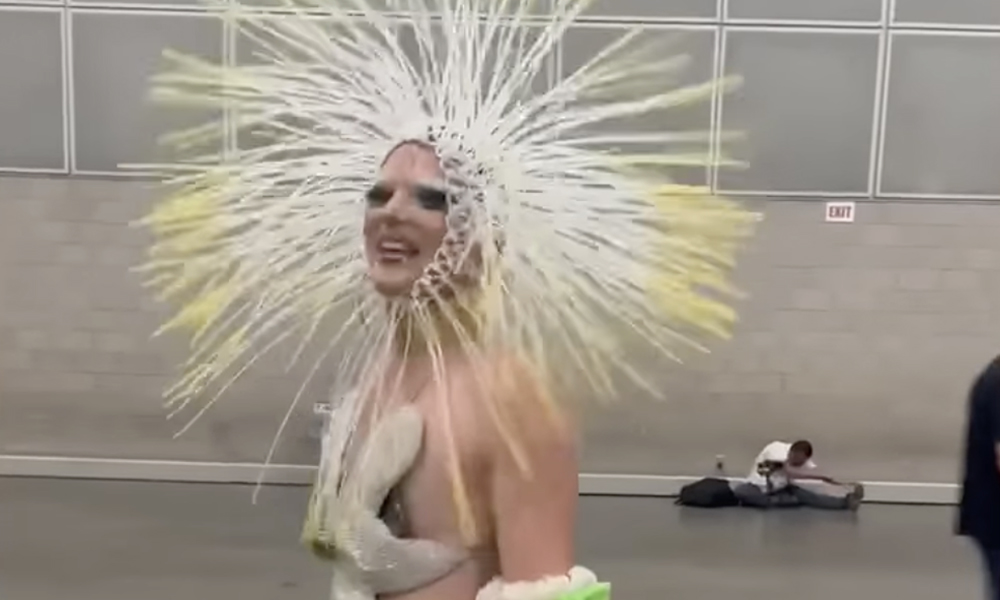Queer singer-songwriter Rêve opens on the past lives, the growing pains and the processes behind Saturn Return, a dynamic debut cementing her status as a bona fide pop artist…
STORY BY: Elio Iannacci
PHOTOGRAPHER: Garrett Naccarato
STYLIST: Amber Watkins
HAIR: Roger Medina
MAKEUP: Adam Oaknine
Taking the stage name of Rêve comes with intense expectations and more layers than a Wes Anderson movie. In French, the word means dream. In Armenia, the term is used to refer to a rave. In the Ukraine, reve is usually designated to describe a roar. Judging by Saturn Return, singer-songwriter Brianna Donolo’s recently-released first disc under the Rêve moniker, all of these translations apply. The Montreal-born, Toronto-based talent’s first major artistic statement is both dreamy, dance-y and daring, and it brings with it just about everything that a Saturn Return promises.
Believed to be the “teacher of the zodiac” by the astrologically obsessed, Saturn is commonly connected to newfound discipline and wisdom. With the planet’s return, Saturn signifies a celestial moment when it resumes its exact position during your birth. This important event – which is supposed to occur in your late 20s – is assumed to bring forth life lessons which prompt you to reassess your values, desires and ambitions.
The debut disc’s standouts – “Breaking Up With Jesus,” “Tongue,” “Release Me” and “Past Life” do this in spades. While these songs keep the harmonic and melodic exquisiteness of Rêve’s two-time Platinum-certified, Juno award-winning cut, “Ctrl + Alt + Del,” they extend her talents into verses that exalt her from mere dance floor darling into a potent pop artist.
Rêve’s knack for explaining what galaxies needed orbiting and which comets needed colliding to create her first album is quite impressive. In fact, she approaches her chorus-creation as more of a novelist than a songwriter following TikTok hacks. This artistic ambition comes across loud and queer when she classifies Saturn Return as more than just a debut and defines it as reclamation. In fact, Rêve says she aims “to recover dance music” and take it back from the clutches of what she calls “EDM bros,” a.k.a. the tacky confines laden with toxic masculinity and a crystal-by-the-case VIP mentality. Instead, Rêve sees this disc as a return to her early days at Montreal’s Velvet and other queer and queer-friendly clubs that created, nurtured and restored dance foors for the 2SLGBTQIA+ community. We talked with her about the sights, sounds and spirits behind her journey.

You once said that making Saturn Return was like going into therapy. Which songs brought the most healing?
It was created during a global pandemic, so Saturn Return has its roots in some dark moments. The music I was making helped me get through so many of them. Tracks like ‘CTRL + ALT + DEL’, ‘My, My Mind (What a Life)’ – which are fun, upbeat songs – reminded me that life would get better. The whole album was built on the hope that we would get to better days where we could all be together again.
What prompted you to write ‘Release Me’?
I was going through a horrible breakup. I had this bad habit of getting into relationships and losing myself in them. I was with a person at the time who was much older and was making me feel ashamed of growing up and going through growing pains. He was basically trying to fast-forward my growth. The only escape that I really had from the situation, from this ultimate seriousness, was music.
Did queer club and dance culture become a sanctuary or a type of church for you?
Yes. I never identified with religion growing up. I was never involved in sports teams. When I started getting out into the clubs and connecting with people via music, I felt like I had found my community for the first time, and it really felt spiritual. I think there’s so much red tape around religion and institutions that make you feel excluded rather than included. In a club environment, I felt nothing but welcome.
So how would you define a spiritual club epiphany?
This is an environment where I feet 100,000 per cent myself. I never felt like I had to dilute any parts of myself to fit into a mould. I was lucky because my parents were not religious, but I saw my friends go through it and feel so afraid to be who they were. I found this amazing community in clubs. It was just like someone finally saying: ‘No, you’re just perfect as you are. You’re good, you’re bad, you’re ugly, it’s all welcome here.’
Fast-forward 10 years from now, when you get the rights to make your biopic. Where would the first scenes be?
In Montreal in a couple of spots in the queer village. I was 16 when I started going to those clubs and seeing my first drag show at [Montreal cabaret] Mado. Velvet was the first place that I fell in love with dance music – it’s queer friendly and it was very offbeat. The crowd was young, old, all sexualities kind of thing. There’s taxidermy on the walls. It’s dimly lit. It’s no frills, and it’s really just about the music.
You have a few ’90s house nods in your music. For example, ‘Skin 2 Skin’ takes inspiration from ‘The Bomb’ from Bucketheads. Tell me about what you think about ’90s fashions and vibes.
It’s the ultimate era of glamour and the diva, but it lasted into the 2000s. I remember when I first started going out, there was just this element of glitz and glamour that you don’t find as commonly these days, where people dressed up for an evening. It was like a slow meal. You would go, and you would be in love with the process of getting ready and maybe having a glass of wine and getting dolled up and getting dressed to the nines and going out and people watching. And the night would start slow. There was a buildup. The drinks would start flowing, and the music would get louder, and then people would start to let loose, and there was just a crescendo. It was an evening out versus ‘let’s go out and rage without a purpose.’ It was really just a romantic experience.
The lyrics to ‘Contemporary Love’ touch on dating app culture – which is anything but romantic. What experiences led you to write the track?
I got onto the dating apps for the first time after my breakup, but a big part of me still believes that love is how it is in the movies. The chase and the crescendo is something I romanticize ad nauseam. I was going into this new modern dating pool suddenly – even though I’m such a relationship person. I soon realized on the apps that we’re now in this culture where it’s commonplace that these apps feel like you are Uber Eats-ing your feelings.
What was the most anti-romantic thing you experienced on the apps?
People’s attention spans tend to be so much shorter these days. I’m like, ‘Where’s the chase that I love? Where’s the back and forth? Where’s the tension?’
So do texts, gaslighting, mind games and ghosting make for great pop songs?
Listen, what’s bad for the heart is good for the art. I think that any sort of reflection, whether that be positive or negative or shocking, makes for good music.

Let’s talk about ‘Tongue.’ Some would call it your coming out track. Is that accurate?
Well, I’m now an out and proud bisexual woman. From a young age, I always knew that it wasn’t just like, ‘Oh, that girl is so pretty.’ I would often think, ‘Oh, this girl makes me nervous because I’m deeply, deeply attracted to her.’ This is the case for women and men. I worked with three of my favourite collaborators for the song: Carl Ryden, Bryn McCutcheon and Kirstyn Johnson. Bryn is queer. An instrumental on Carl’s collection was called ‘Tongue’ with no context. I thought it was disgusting and sexy-sounding, and I love things that are like, ‘Made you look,’ so that’s how it started. The instrumental reminded me of meeting a woman and lusting after her. So I basically wrote it from the POV of a night out. Having Bryn in the room made for some fun riffing. I had written about women before, but this song made me feel like I was ready to tell this part of my story to everyone. It gave me the strength to be like, ‘You know what? It’s time.’
There’s such a history of queer people in music collaborating with pop artists. From someone who’s in the trenches, what do you think that collaboration means to you?
There is so much queer greatness. I surround myself by amazing queer collaborators. Not just writers, but also my choreographers, my glam team and musicians. There’s so much of queer culture that is to be celebrated, and the life they lead and the art they make are the nucleus of what so many people draw from every single day. But they don’t credit. It’s really important to credit the source and where it came from.
Your song ‘Whitney’ – which you namecheck Whitney Houston in – certainly does that. What would you say her impact has been on you?
There will likely never be a voice like Whitney Houston. She is one of one. She’s such a powerhouse that I think people will be sampling sound bites and lyrics from her ’til the end of time. She faced a lot of adversity. She was able – for a very long time – to overcome some of it and just be the great performer and human being and icon that she was despite all of it.
Songs like ‘Disco at the Strip Club’ have these cool lines like ‘girls who smell like crème brûlée’ – referring to the dancers. Was this also from nights out?
It was a real-life story…probably in a strip club called Kingdom in Montreal or one that is now closed down called Kamasutra. I love when lyrics have odd details. I remembered how the clubs smelled and how I felt being there. I love writing lyrics where you can close your eyes and reach out and touch and taste what the person is trying to sing about. I also love empowered women, and you don’t always find that in every strip club. There have been a couple of nights where I just met incredibly strong dancers who were so incredible. My girlfriends and I would end up sitting in the private rooms and not getting lap dances from these girls and just tipping them but having conversations instead.
Tracks such as ‘Breaking Up With Jesus’ and ‘Hypersexual’ really go against what is going on with ‘Don’t say gay’ laws in Florida and the recent protests surrounding queer and trans kids. Do you think being outspoken is necessary?
One hundred per cent. Music is one of the most powerful forces in the world that transcends language. It transcends everything. I think the possibilities are endless where there is unity. Anywhere there’s unity, all of that can flourish. To be as loud as possible to combat what we’re facing now, as a community, is important right now.
ELIO IANNACCI is an award-winning arts reporter and graduate student at York University whose research interests include ethnomusicology and gender studies. He has contributed to more than 80 publications worldwide, profiling icons such as Barbra Streisand, Lady Gaga, Aretha Franklin and Beyoncé. His academic work is supported in part by funding from the Social Sciences and Humanities Research Council.







POST A COMMENT